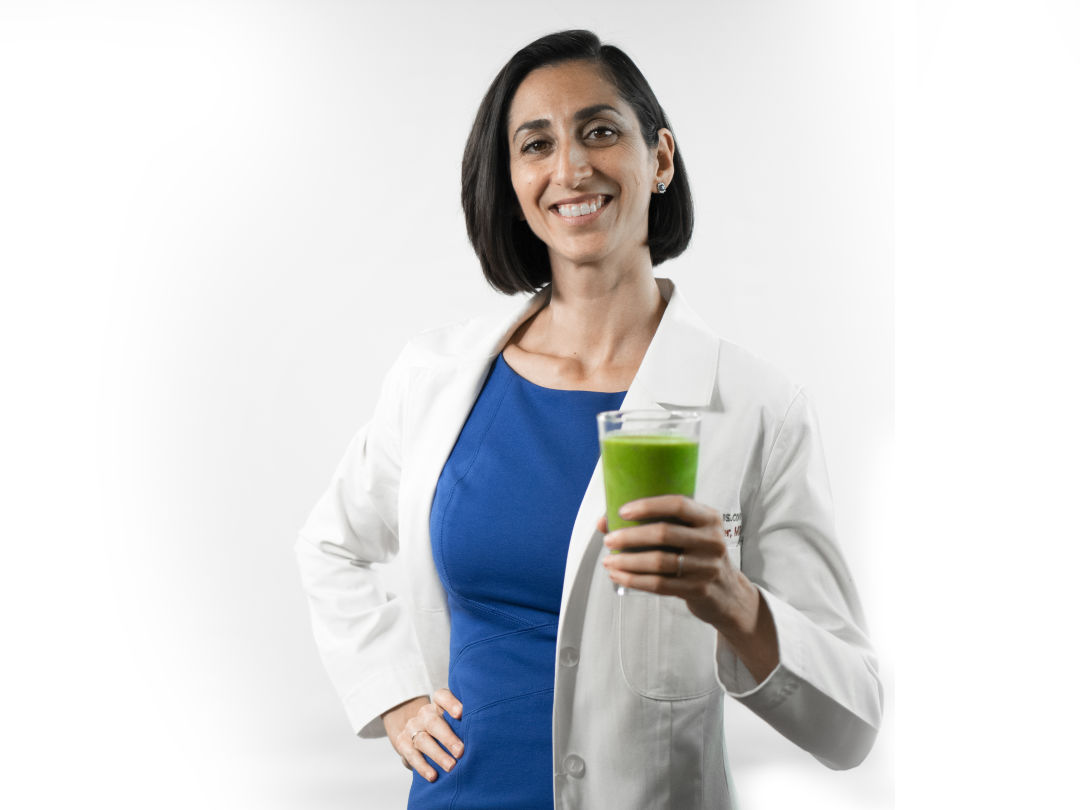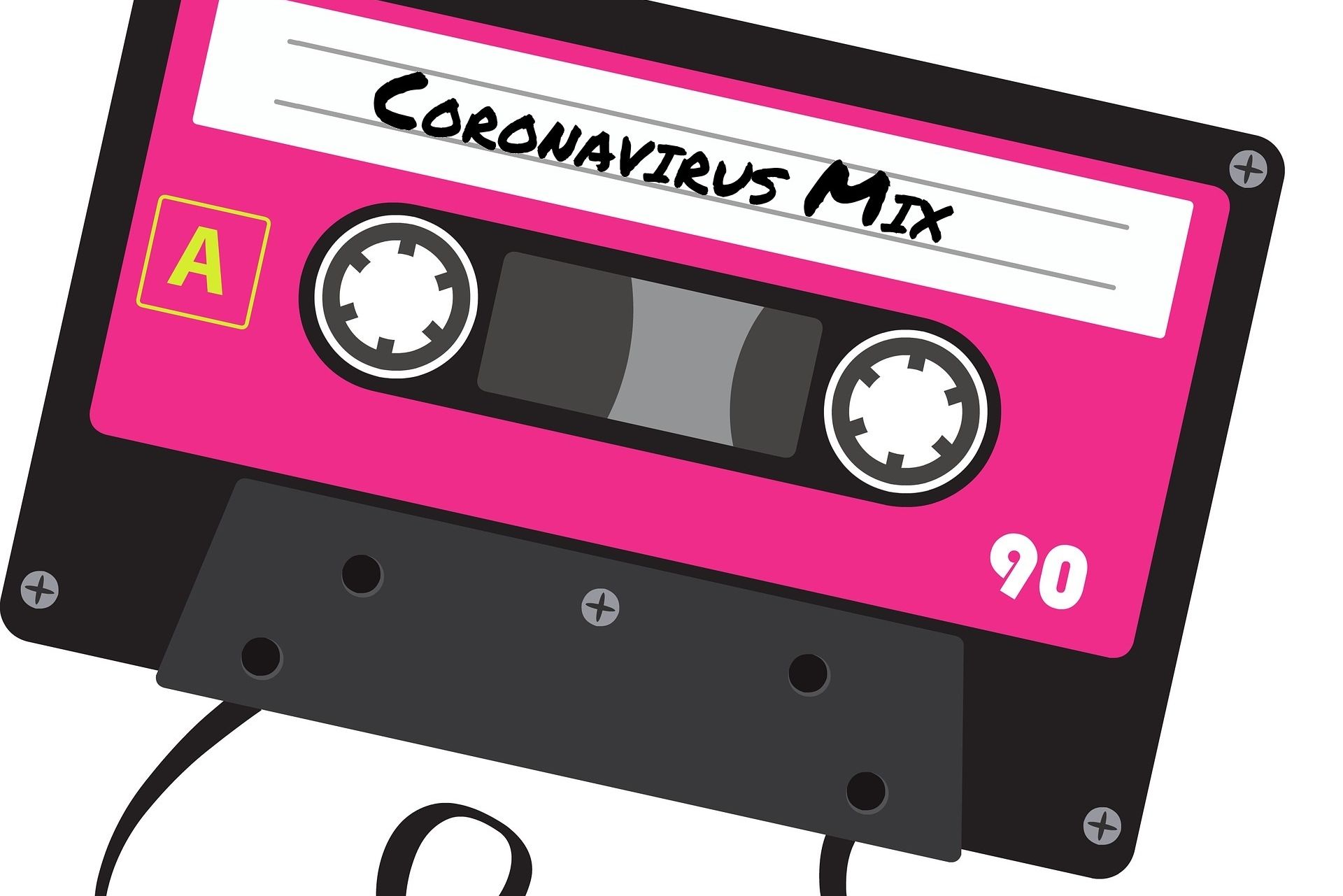Want to Boost Your Immune System? Drink a Green Smoothie.

Dr. Brooke Goldner
Image: Leo Lopez
As COVID-19 continues to disrupt life as we know it, health is at the forefront of all of our minds. And while medical experts have confirmed that the elderly, infirm, and people with underlying health issues are most at-risk of getting seriously ill from this virus, anyone and everyone is susceptible to catching the novel flu-like illness.
Given that, it seems like a good time to do everything we can to stay as healthy as possible. Of course you should keep washing your hands—thoroughly and regularly—and practicing good hygiene, but why not take a look at your diet, too?
Houston-based, board-certified doctor and best-selling author Dr. Brooke Goldner is a proponent of a plant-based nourishing protocol—particularly when it comes to addressing chronic illness, but even otherwise healthy people can benefit from efforts to boost your immune system.
"There are certain foods that will optimize your body's ability to fight infection, and then there are other foods that will actually make you vulnerable to getting sick," Goldner says. "I work with patients all the time who change their diet and not only feel better but have so much energy and can stay healthier for longer periods."
Goldner created a simple grocery list of three foods to boost your immune system, and she also let us know which supermarket aisles to avoid entirely. Just remember to wash your hands (!) and leave some toilet paper for the rest of us.
Dark green and cruciferous vegetables
Goldner says that dark, leafy green, and cruciferous veggies should comprise the bulk of your diet. That means the foods most people like to keep on the side of their plates—like spinach, kale, cabbage, and broccoli—should actually be the centerpiece of their meals. These veggies are best in their raw form, packed with tons of vitamins, minerals, nutrients, and antioxidants that your cells and body need to keep you healthy.
Omega-3 fatty acids
People get this important diet staple from chia or flax seeds, Goldner says. When your body has an inflammatory response—which happens when you get sick—your body creates extra immune cells to attack the virus. After that happens, your body also needs an anti-inflammatory response to clear everything out and get you back to normal. And to do that, your body needs omega-3s.
Water
The final immune booster, Goldner says, is upping your water intake. Your body requires a large amount of H20 to facilitate anti-inflammatory responses, clean up toxins, and simply run properly. Being dehydrated is kind of like running your car without putting any oil in it—it's just not going to work correctly. Most people are actually severely dehydrated, and some of the most common symptoms are constipation, headaches, and inability to heal well from infections. Goldner recommends people drink much more than the recommended 64 ounces of water per day. If you're sick, she says, drink at least 96 ounces per day—and up that to 128 ounces if you're over 120 pounds. That much water will your body heal when sick and boost your ability to fight off infection.
How can I eat all of that?
The easiest—and tastiest—way to consume all of these super-foods is in a smoothie. Goldner says to combine one pound of greens, 1/2-cup of chia or flax seeds, and 30-40 ounces of water in a blender, then fill the rest with fruit for flavor. If you drink that entire blender by the end of the day, you've consumed at least one-third of your water intake and all of your required greens, vitamins, minerals, antioxidants, and omega-3 fatty acids. A green smoothie is an easy way to help protect your body from infection—especially for people who don't want to eat salad all day long.
What should I avoid?
Any foods that create excess inflammation in the body can make you sicker by slowing down your body's ability to recover—not to mention causing long-term damage. The foods that people are most addicted to, Goldner says, are the foods making them sick: Things like processed foods, or anything you buy in a package that never goes bad. Avoid everything in the snack or chip aisle and any foods with excess oil, which will all increase inflammation. It's also best to cut down on animal products like dairy and meat—they're often consumed in quantities too large for your body to handle, especially if you're sick or trying to fight off infection.




